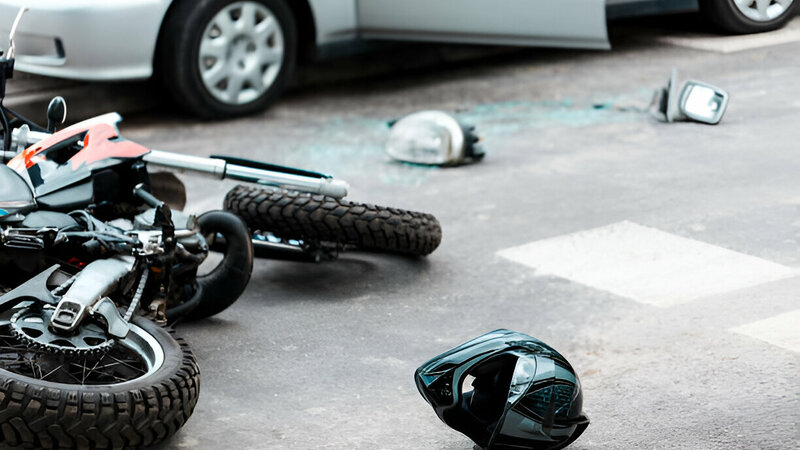For motorcycle enthusiasts, the thrill of hitting the open road is undeniable. However, it’s crucial to recognize the hazards of riding. From unpredictable road conditions to mechanical failures, riders face various risks.
What Are the Most Common Motorcycle Hazards?
Motorcycle riders contend with numerous road hazards, including poor road conditions, adverse weather, and the behavior of other drivers. Poor road conditions like potholes and debris can lead to accidents, while weather challenges such as rain and snow diminish visibility and control. Interactions with other drivers present risks, as some may overlook motorcycles on the road. Additionally, mechanical failures like tire blowouts or brake issues can arise unexpectedly, endangering riders.
Road Conditions
The condition of the road directly impacts motorcycle safety, with hazards like potholes, debris, and slippery surfaces posing significant risks. Riders must conduct regular maintenance checks to ensure their bikes are equipped to handle such challenges effectively.
Weather Conditions
Adverse weather conditions like rain, snow, and fog affect motorcyclists’ visibility and road grip. Proper gear and riding techniques are crucial to safely navigate these conditions and mitigate the associated risks.
Other Drivers
Interactions with other drivers on the road present hazards due to factors like distracted driving and violations of traffic laws. Defensive riding and heightened situational awareness are essential for motorcyclists to avoid accidents caused by the actions of other motorists.
Riding at Night
Nighttime riding introduces visibility challenges, making it crucial for riders to utilize proper lighting and reflective gear to enhance visibility for themselves and other road users. Additionally, precautions should be taken to address unpredictable weather conditions that may further reduce visibility.
Mechanical Failures
Mechanical issues such as brake malfunctions and tire blowouts can lead to critical situations for motorcyclists. Regular maintenance and pre-ride inspections are necessary to detect and address potential problems before they escalate into road emergencies.
How to Protect Yourself from Motorcycle Hazards
Protecting yourself from motorcycle hazards involves wearing appropriate protective gear, practicing defensive riding techniques, maintaining your bike regularly, and continually improving your riding skills and experience. Adhering to safety practices on the road, such as obeying speed limits and correctly using turn signals, reduces accident risks. Investing in high-quality protective gear like helmets and jackets is crucial for safety in case of a fall or collision. Regular motorcycle maintenance, including tire pressure and brake functionality checks, helps prevent mechanical failures. Additionally, advancing riding skills through training courses enhances the ability to navigate various road conditions confidently.
Wear Protective Gear
Proper protective gear, including helmets, jackets, gloves, and boots, is essential for minimizing injuries during accidents. Helmet laws mandate their use in many areas, while padded jackets offer impact absorption and protection against road rash. Gloves maintain grip and shield hands, while durable riding boots provide ankle support and protect against burns.
Maintain Your Bike Regularly
Regular motorcycle maintenance ensures proper functioning and reduces mechanical failures while riding. Regularly check tire pressure, brakes, lights, and fluid levels to prevent unexpected breakdowns. Monitoring tire pressure ensures optimal traction, while brake system inspections enhance stopping performance. Properly functioning lights increase visibility, and checking fluid levels guarantees smooth operation.
Ride Defensively
Defensive riding involves anticipating and responding to potential hazards on the road, adhering to traffic laws, and maintaining awareness of surroundings. Keep a safe following distance, scan the road for hazards, and yield the right of way to contribute to a smoother traffic flow and reduce misunderstandings and collisions.
Be Aware of Your Surroundings
Awareness of surroundings is crucial for identifying potential risks and reacting promptly. Maintain situational awareness to anticipate dangers before they escalate, positioning yourself for maximum visibility on the road. Be alert to possible hazards like sudden stops, road debris, or erratic drivers to react swiftly and avoid accidents.
Plan Your Route
Planning your route before a ride allows anticipation of potential challenges such as road construction or adverse weather. Consider alternate routes for a safer and more enjoyable journey, considering road conditions, visibility, and personal riding expertise to tailor the trip to preferences and comfort levels. This proactive approach enhances safety and adds to the riding experience, ensuring confidence and peace of mind.
What to Do in an Emergency Situation
In emergencies such as tire blowouts, brake failures, collisions, or getting stranded, motorcyclists must employ specific emergency maneuvers to minimize risks and ensure safety on the road. When faced with a tire blowout, maintaining control is crucial by gently easing off the throttle and avoiding sudden braking, allowing the bike to decelerate gradually. For brake failures, riders should systematically engage the front and rear brakes together while downshifting to reduce speed. In the unfortunate event of a collision, swift assessment of injuries and calling emergency services immediately are paramount. If stranded, motorcyclists should stay visible, secure their bikes, and seek assistance from passing vehicles or emergency contacts. It’s important to stay composed and think clearly in such situations, ensuring safety remains the top priority while taking proactive steps to resolve the issue and seek assistance promptly. If you need the help of someone you can trust after an auto accident, motorcycle accident, truck accident, or other type of accident, contact 1-800-ASK-GARY today, a Lawyer and Medical Accident Helpline.
